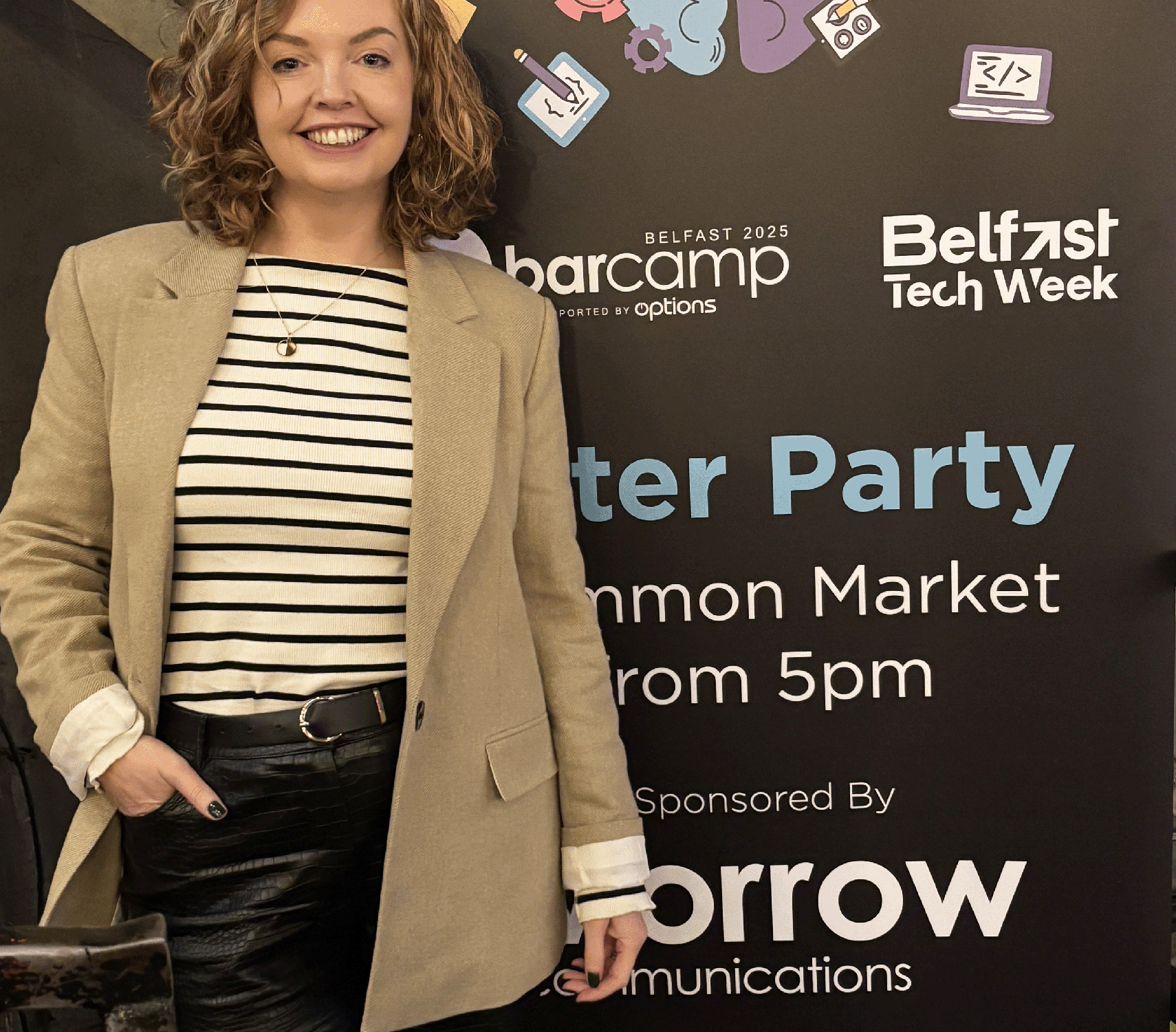Avoiding the Pitfalls of AI in Marketing

By Jacinta Parkhill, Company Director
I recently had the opportunity to host a round table at Barcamp Belfast as part of Belfast Tech Week 2025 on ‘avoiding the pitfalls of AI in marketing’. As an AI enthusiast and marketing practitioner, I’m always keen to hear how businesses are adopting AI in their comms and marketing activity – how they are navigating the pitfalls and where it is adding real value – is the juice worth the squeeze?
Artificial Intelligence is transforming the world we live in at an unprecedented speed. Its impact in a short timeframe will make the industrial revolution look like the warm-up act before Taylor Swift takes to the stage. While every nation, organisation and business scrambles to harness the power of AI to improve processes, make efficiencies and ‘not be left behind’, why does AI have such a poor reputation when it comes to comms and marketing?
The narrative surrounding AI in marketing has been one of distrust and deception with the use of AI often viewed as somehow cheating. We’ve seen this countless times – from negative reaction to Coca Cola’s AI generated Christmas ad to Vogue’s Guess ad using AI generated models, and closer to home, our Education Minister getting lambasted for being suspected of using AI to write a speech – and his outrage at such an accusation (while China makes AI education compulsory in schools!). AI and comms are not always happy bedfellows.
Research shows that public opinion on AI is divided – for every curious enthusiast, there’s a sceptic who fears the machine! And those fears are not entirely unfounded. People fear that AI will replace their jobs, there are concerns around data and privacy, about bias and accuracy of information, but ultimately negativity around AI in marketing stems from mistrust – a feeling that by using AI you are deceiving your audience. Even when brands are fully transparent about using AI, the audience reaction tends to be negative.
According to the 2025 Edelman Trust Barometer, 81% of consumers need to trust a brand before they buy. It’s no surprise that brands and organisations invest heavily in building reputation and trust but when AI is used in the wrong way, it diminishes that trust. We saw how early AI slop infiltrated the creative industries – with its 6-fingered, creepy looking image generation to its verbose prose, reminiscent of the Friends episode where Joey uses the thesaurus to write a letter for Monica and Chandler. These obvious flaws made AI easy to spot but these kinks are, in a very short space of time, being ironed out as AI is continually fine-tuning. It’s becoming increasingly difficult for audiences to know what to ‘trust’.
Good marketing relies on authenticity and building an emotional connection with your audiences. To communicate authentically does not mean that you should avoid using AI – it’s becoming almost impossible not to use it as it gets integrated into almost every app and programme we use. Instead, see it for what it is – a very powerful tool that can make us more efficient, can strengthen our critical thinking and can streamline work processes so we can spend more time doing the things that humans will always do better than machines – empathy, connection and emotion – the true basis of trust.
And before you ask, I didn’t use AI to write this (it may have been better if I did!) but I did use it for research. AI may be able to replace the process of writing, but it will never replace the joy of writing.

